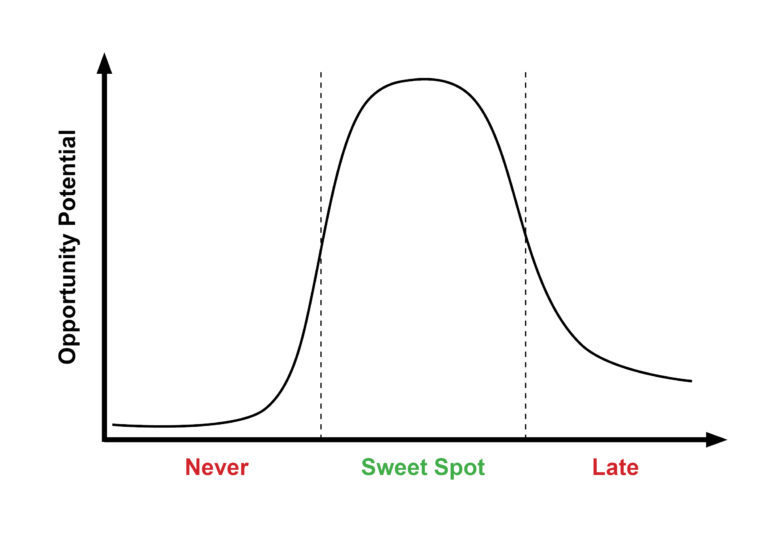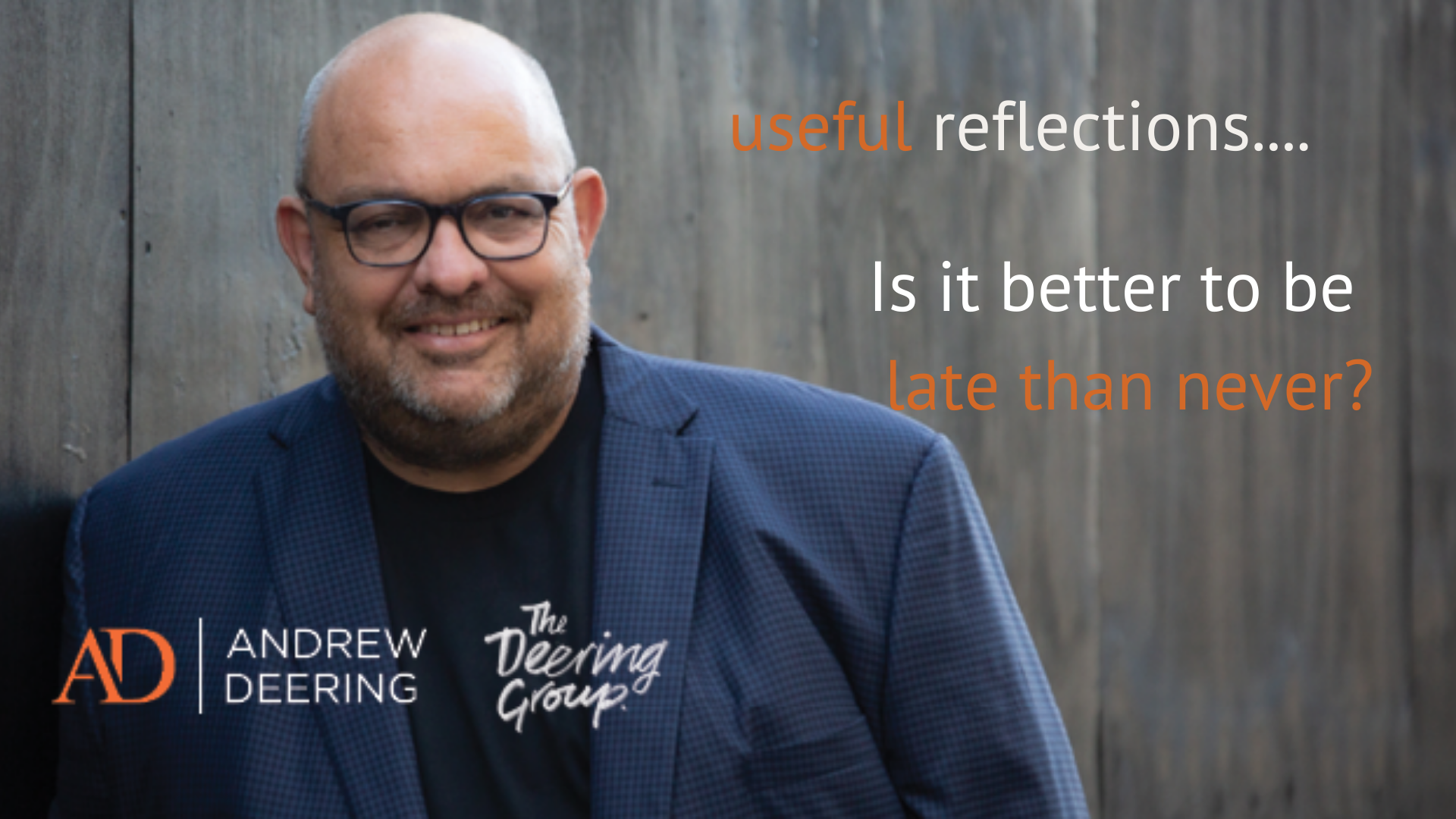How did it get so late so soon? It's night before it's afternoon. December is here before it's June. My goodness how the time has flewn. How did it get so late so soon?
Dr Suess Tweet
I’m fortunate that I get to travel regularly with my job. When it comes to air travel, I see two distinct personalities. There are the people who arrive at the airport early. They have plenty of time to check in, go through security, have a coffee and a bite to eat before arriving at their gate on time and hassle-free.
Then there are the people who arrive just on time or are late. They race through check-in and security to their gate, stressed and flustered. Often, the plane and passengers have been forced to wait patiently – and sometimes not so patiently – for this one person.
People who are late for their flight are often late in other areas of their lives. We are all late from time to time, but some people are serial latecomers. Their lateness has become a habit. They often excuse their lateness with the throwaway statement, “It’s better to be late than never.” But is this true? In the airport example, I’m sure the other passengers and airline staff would disagree.
In one sense, it’s true that it’s better to be late than never because never gets you nowhere. But this way of thinking absolves the individual from responsibility. When you are late, you dishonour those around you. And, when you are in a position of leadership, habitual lateness undermines your credibility.
Why is this? Firstly, being on time shows you care. There is great truth in the adage, “People won’t care how much you know until they know how much you care.” Essential to this is having respect for other people’s time by being on time yourself.
Secondly, timeliness shows you are responsible. You stay true to your word. Being on time instils others’ confidence in you. They know they can rely on and trust you. This is especially important if you are trying to get a promotion or are seeking professional development opportunities.
Thirdly, being on time reduces stress. It eliminates far-reaching consequences not only for yourself but for all parties involved. In the work environment, if you are late with the delivery of a project or product, or continually late for meetings, you can slow down your team and even the entire organisation, impacting the bottom line and creating pressure for everyone.
The while we keep a man waiting, he reflects on our shortcomings.
Proverb Tweet
The below model challenges the statement, “It’s better to be late than never.” For those people who never show up when they say they will, their potential for opportunity and engagement is zero to minimal at best. Those who are late have slightly more opportunity and engagement potential, but these levels are still low. In the middle, you will see “the sweet spot of timeliness”. This represents the opportunity space, where you show up on time or early. Your timeliness is optimised in this space, and you receive opportunities and the potential for the highest levels of engagement.

When someone else’s lateness impacts us, we feel disempowered, as though the person doesn’t value us. In truth, there are many reasons why we or others are chronically late. Diana DeLonzor, author of Never Be Late Again, says being late is often not an issue of power or lack of respect. “It’s not usually about control. It’s not that they don’t value your time. It’s not that they like the attention when they walk into the room. Most late people have been late all their life, and they are late for every type of activity – good or bad.”
DeLonzor divides the chronically late into two categories: the deadliner and the producer. The deadliner is “subconsciously drawn to the adrenaline rush of the sprint to the finish line”. The producer, on the other hand, “gets an ego boost from getting as much done in as little time as possible”. She adds that people who are habitually late are often both optimistic and unrealistic, which affects their perception of time.
I think all of us have been guilty of believing we can get much more done in the time allotted than we honestly can. However, the problem is when this way of thinking becomes our default. Thankfully, we can take steps to take back control of our time and respect the impact that can have on others.
Most people overestimate what they can do in one year and underestimate what they can do in 10 years.
Bill Gates Tweet
So, how can we ensure we manage our time realistically and show up when we say we will?
- Plan. Make sure you actively plan your days, weeks and months. Think about the windows of time you have and what needs to get done. How much can you realistically achieve? Allow yourself a reasonable amount of time to accomplish each goal.
- Prepare. Spend at least 15 minutes each day preparing yourself for the tasks ahead. What have you got on today? If you have a meeting scheduled, use this time to review the agenda. Remember to factor in the time it will take for you to get to and from appointments and events.
- Be honest. If it looks like you will not be on time for a meeting or you will need to re-schedule a project or deliverable, notify those who will be impacted as quickly as possible. By being honest and transparent, you will save disappointment and uphold respect – others’ respect for you and your respect for others. If you aren’t upfront about your lateness, the conversation will be much more difficult when it’s no longer avoidable.
- Use technology. There are some amazing devices and apps that can help you schedule and manage your time. For example:
RescueTime. A neat app that will likely shock you as it shows where you are wasting your time.
Focus Booster. Based on the Pomodoro technique, this app helps you focus on and complete tasks.
The reminder function of your i-device. Set alarms, reminders and get into the smart features that can let you know about traffic and time requirements for your next meeting.
So, in conclusion, do you want to be like the White Rabbit in Alice’s Adventures in Wonderland, bouncing from one disaster to the next, proclaiming, “I’m late, I’m late, for a very important date”? Or do you want to be the individual who recognises it isn’t better to be late than never; it is much better to be timely and considerate of others and yourself, so opportunities open themselves to you?
If lateness is an issue for you, think about how you can start to do things differently tomorrow.
Be well, be kind, be true, be you.


